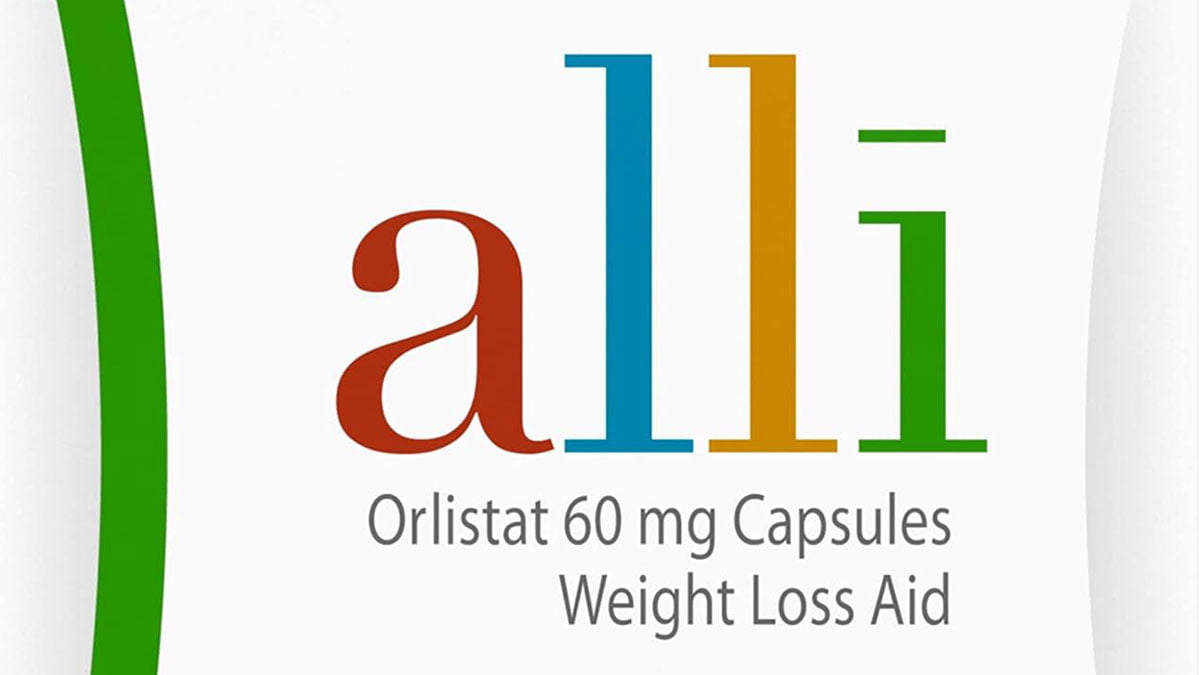Table of Contents
If you are looking for a weight loss pill that has been proven to work, you might have heard of Alli. Alli is the over-the-counter version of Orlistat, a prescription drug that blocks the absorption of fat from the food you eat. Sounds great, right? Well, not so fast. There are some things you need to know before you decide to try Alli, such as how it works, what results you can expect, and what side effects you might experience. In this article, we will answer the question: does Alli work as a weight loss pill?
How it Works

A 170-count pack of Alli currently costs $79.99 on Amazon
This pill works by inhibiting an enzyme called lipase, which is responsible for breaking down fat in your digestive system. When you take Alli with a meal, about 25% of the fat you consume is not digested and passes through your body as waste. This means you consume fewer calories from fat, which can help you lose weight. However, this also means that you need to follow a low-fat diet plan when you take Alli, otherwise you will suffer from unpleasant side effects (more on that later).
Alli is the only weight loss pill that has been approved by the FDA for over-the-counter use. It is intended for adults who have a body mass index (BMI tool here) of 25 or higher, and who are willing to make lifestyle changes to support their weight loss goals. Alli is not a miracle pill that will make you slim overnight. It is a tool that can enhance your weight loss efforts, but only if you use it correctly and consistently.
What Results You Can Expect
The weight loss you can achieve with Alli depends on various factors, including your starting weight, diet, exercise habits, and how your body responds to the medication. Clinical trials have shown that Alli can help increase weight loss by up to 50% compared to dieting alone. For example, if you lose 10 pounds through diet and exercise, taking Alli could help you lose an additional 5 pounds. While this might not seem significant, it can greatly impact your health and appearance.
In one-year clinical trials, 35.5% to 54.8% of participants taking Alli experienced a 5% or greater reduction in body mass, though it was unclear how much of this was fat. Additionally, 16.4% to 24.8% achieved a 10% or more reduction in body mass. The effects of Alli were also shown to be more substantial when combined with a calorie-controlled diet, and it reduced the risk of developing type 2 diabetes in overweight and obese individuals.
However, it’s important to note that the weight loss benefits of Alli are not permanent. Participants in the study regained about one-third of the weight they had lost after stopping the medication. This is common among dieters who do not maintain their lifestyle changes once they reach their weight loss goals. Therefore, to sustain weight loss, it is crucial to continue following a healthy diet and exercise regimen even after discontinuing Alli. Maintaining these lifestyle changes is essential for long-term success in weight management and overall health.
What Side Effects You Might Experience
The primary downside of using Alli lies in its side effects, which are closely tied to how the drug works. Since Alli blocks the digestion of some dietary fats, it also prevents the absorption of certain fat-soluble vitamins and nutrients. This can result in deficiencies of vitamins A, D, E, and K, as well as beta-carotene and other antioxidants. To mitigate this, users are advised to take a multivitamin supplement at least two hours before or after taking Alli to ensure they get the necessary nutrients. You will find such multivitamins here for her and for him.
Furthermore, the undigested fat can cause digestive discomforts, including flatulence, loose stools, and even bowel incontinence. These side effects are more pronounced if the user consumes more fat than recommended while on the medication. The manufacturer advises users to be cautious and suggests wearing dark clothing and carrying a change of clothes until they understand how the medication affects them. This aspect underscores the importance of adhering to a low-fat diet to minimize these unpleasant effects.
Interestingly, these side effects can serve as a powerful motivator for some individuals to stick to their diet, as the immediate consequences of eating too much fat are a constant reminder. Despite the potential for discomfort, many find that the benefits outweigh the drawbacks. Alli can enhance weight loss by up to 50%, which means if a person loses 10 pounds through diet and exercise alone, they could potentially lose an additional 5 pounds with the help of Alli.
However, it’s important to recognize that these benefits are not permanent. Participants in studies often regained about one-third of the weight they had lost after stopping the medication. This rebound effect is common among dieters who do not maintain lifestyle changes after reaching their weight loss goals. To maintain weight loss, it’s essential to keep following a healthy diet and exercise routine even after stopping Alli.
In conclusion, while Alli can be an effective tool for weight loss, it requires a commitment to dietary and lifestyle changes to achieve and maintain the desired results. Users must be prepared for possible side effects and take steps to mitigate nutrient deficiencies by using multivitamins.
Ultimately, the combination of Alli with a balanced diet and regular exercise can lead to significant improvements in weight management and overall health. However, individual results will vary, and maintaining these changes is essential for long-term success.

Alternatives or Complementary Approaches
While Alli can be an effective aid for weight loss, it may be beneficial to explore other complementary approaches or alternatives. Incorporating natural weight loss supplements like green tea extract, garcinia cambogia, or conjugated linoleic acid (CLA) could potentially enhance fat-burning and metabolism.
However, it’s crucial to consult with a healthcare professional before combining any supplements with Alli or other medications.
Success Stories or Case Studies
Many individuals have found success with Alli when combined with a healthy lifestyle. For instance, Sarah, a 35-year-old teacher, lost 25 pounds over six months by taking Alli, following a low-fat diet, and engaging in regular exercise. She reported increased energy levels, improved self-confidence, and a renewed motivation to maintain her weight loss journey.
Similarly, John, a 42-year-old accountant, shed 30 pounds with the help of Alli and lifestyle changes, alleviating his joint pain and reducing his risk of developing type 2 diabetes.
Is it Right for You?
This is not a magic diet pill that will melt away your excess pounds while you sleep, but it is a pill that has documented results. If you are determined to lose weight and have been struggling with diets without much effect, it may be a good time to discuss it with your doctor and find out if it is right for you. It can help you lose more weight than dieting alone, but only if you follow a low-fat diet plan and exercise regularly. It can also lower your risk of diabetes and improve your blood pressure and cholesterol levels. However, it can also cause unpleasant side effects and vitamin deficiencies, and it is not a long-term solution for weight maintenance. Ultimately, the decision to take it is up to you and your doctor, based on your weight loss goals, your health status, and your personal preferences.
Potential interactions with specific health conditions
Individuals with certain health conditions should exercise caution when considering Alli. Those with type 2 diabetes may need to monitor their blood sugar levels closely, as the medication can potentially affect the absorption of diabetes medications.
Patients with hypertension or heart disease should consult their doctor, as Alli may interfere with the absorption of certain blood pressure or cholesterol-lowering medications.
Additionally, those with inflammatory bowel diseases like Crohn’s or ulcerative colitis may experience exacerbated symptoms due to the gastrointestinal side effects of Alli.
Whatever you choose, remember that losing weight is not only about looking good but also about feeling good and staying healthy.
Useful links: Natural Weight Loss Supplements | Exercise Equipment for Weight Loss
Frequently Asked Questions about Alli
How much does it cost?
The price of alli may vary depending on where you buy it and how much you buy. A 170-count pack of Alli currently costs $79.99 on Amazon.
How long does it take to see results?
The results of Alli may vary depending on your individual factors, such as your starting weight, your diet, your exercise, and your adherence to the program. According to clinical trials, most people who take Alli lose weight within the first 6 months of use. In any case, some people may see fast results or slow ones than others. The best way to measure your progress is to weigh yourself regularly and track your body mass index (BMI).
What are the side effects?
The most common side effects are related to the undigested fat that passes through your body. These include flatulence, loose stools, and bowel incontinence. These side effects are more likely and more severe if you eat more fat than recommended while taking it. To reduce these side effects, you should follow a low-fat diet plan and drink plenty of water. You should also take a multivitamin supplement at least two hours before or after taking it to prevent vitamin deficiencies.
Can I take it with other medications or supplements?
Alli may interact with some medications or supplements, so you should always consult your doctor before taking it if you are using any other drugs or products. Some of the medications and/or supplements that may interact with this Alli are:
– Anticoagulants (blood thinners), such as warfarin
– Anticonvulsants (seizure medications), such as phenytoin or carbamazepine
– Antiretrovirals (HIV medications), such as atazanavir or ritonavir
– Thyroid medications, such as levothyroxine
– Cyclosporine (an immunosuppressant)
– Vitamin E, D, A, and K supplements
Who should not take Alli?
Alli is not suitable for everyone, and you should not take Alli if you have any of the following conditions or situations:
– You are pregnant or breastfeeding
– You are under 18 years old
– You have a history of kidney stones or gallbladder problems
– You have a history of eating disorders or malabsorption syndromes
– You have a history of pancreatitis or liver disease
– You are allergic to orlistat or any of the ingredients in Alli
If you have any doubts or questions about whether Alli is right for you, you should always consult your doctor before taking all.
Was this Article Helpful?
We hope that you found this article helpful and informative. We are always striving to provide you with the best content and resources about Alli. We would love to hear from you and get your feedback and suggestions.
Please visit our Facebook page and leave us a comment or a message. Tell us what you liked or disliked about this article, what you learned or want to learn more about, and what you want us to write about next.
Your input is very valuable to us and helps us improve our work and achieve our goal of helping you reach your health and fitness goals. Thank you for reading and supporting us.





















